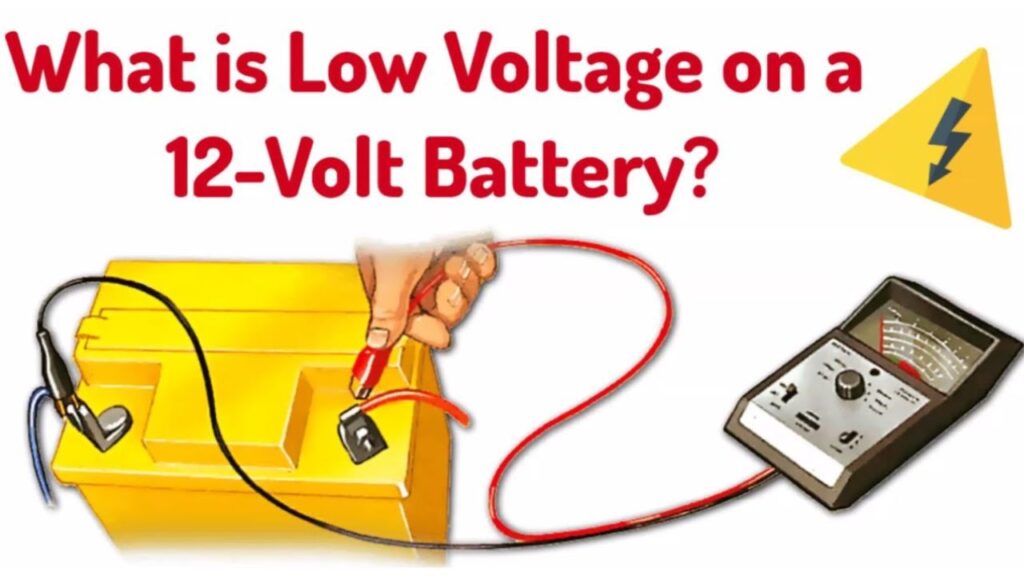Yes, 13.6 volts is good for a 12-volt lithium iron phosphate battery, showing it is fully charged. Older ones might read 13.5V. This voltage indicates optimal performance and a high state of charge.
Always check the manufacturer’s specifications for your specific battery model for the most accurate information. This voltage means your battery is in great shape.
What Voltage Is Too Low For A 12 Volt Battery?
A 12-volt battery is too low if it drops below 12.0 volts when fully charged.

At 11.8 volts, it’s only 25% charged, and below 10.5 volts, it’s considered dead or damaged. Always recharge or replace the battery if it consistently reads low to avoid performance issues.
Will 13.6 volts charge a battery?
Yes, 13.6 volts will charge a 12-volt battery. This voltage is within the safe range for charging, helping to keep the battery fully charged without overcharging. It’s important to regularly check the battery to ensure it stays in good condition.
Factors that Affect Battery Charging
Factors that impact battery charging efficiency include the charger’s strength (capacity), the battery’s type (different batteries have different needs), temperature (extreme heat or cold can slow down charging), and charging conditions (a stable environment is best).
Understanding these elements helps you optimize battery performance and extend its lifespan, ensuring it stays in top shape.
Read Also: Are Diehard Car Batteries Good – Complete Details!
13.6 Volts vs Other Charging Voltages
Voltage Dynamics:
When charging a 12-volt battery, 13.6 volts is a good level, ensuring effective charging without overcharging.

Lower voltages may not charge the battery fully, while higher voltages can overcharge and damage it. Ideal charging voltages typically range from 13.5 to 14.5 volts, depending on the battery type.
LiFePO4 vs. Lead-Acid:
LiFePO4 batteries are lighter, last longer, and charge faster than lead-acid batteries. Lead-acid batteries are less expensive, but they are heavier and don’t last as long.
LiFePO4 offers better performance and efficiency, while lead-acid is more traditional and affordable.
Smart Charging:
Use smart chargers to adjust the charging process for your battery’s needs. It prevents overcharging, manages energy use, and extends battery life.
Smart chargers can monitor battery health and adjust settings automatically, ensuring a safe and efficient charge every time.
Read Also: How Long Does A Jeep Battery Last – Complete Guide In 2024!
Tips for Achieving Optimal Battery Charging
Partial Charging:
Battery charging, avoid frequent partial charging, which can reduce battery life. Try to fully charge the battery when possible and avoid letting it drop too low. Consistent full charges help maintain battery health and performance over time.
Avoid Overcharging:
To avoid overcharging, always use a charger with an automatic shut-off or smart charging feature.

Overcharging can harm the battery and make it last less Monitor the charging process and unplug the battery once it’s fully charged to keep it in good condition.
Moderate Temperature Charging:
Charge your battery in a moderate temperature range, ideally between 10°C and 25°C (50°F to 77°F).
Extreme heat or cold can affect charging efficiency and damage the battery. Keeping the battery at a stable, moderate temperature helps ensure safe and effective charging.
The Importance of Properly Charging Your Battery
Further, Properly charging your battery is crucial for its performance and lifespan. It helps the battery work well and prevents damage from overcharging or draining too much.

Following correct charging practices helps maintain battery health, giving you reliable power and extending its usable life.
How is Battery Voltage Measured?
The Battery voltage is measured using a digital multimeter. Set the meter to the DC voltage setting, then connect the red probe to the battery’s positive terminal and the black probe to the negative terminal.
The meter displays the battery’s voltage, showing its charge level and health.
What is the Difference Between Voltage and Current?
Voltage is the force that pushes electrical energy through a circuit, like water pressure in a hose. Current is the flow of electrical charge, like the amount of water flowing through a hose. Voltage pushes the current, and both are needed to power devices.
Frequently Asked Questions:
1. What does a 13.6 battery voltage indicate?
A 13.6 battery voltage usually means the battery is fully charged, especially for lithium batteries. It shows that the battery is either fully charged or in the process of charging. For a 12-volt battery, this voltage is normal and indicates good health.
2. Can a battery maintain 13.6 volts without being charged?
No, a battery cannot maintain 13.6 volts without being charged. This voltage is typical during charging or shortly after. When not charging, the voltage usually drops to a lower level, such as 12.6 volts for a fully charged 12-volt battery.
3. Is 13.6 Battery Voltage Dangerous?
No, 13.6 battery voltage is not dangerous for a 12-volt battery. It’s a normal reading, especially when the battery is being charged. However, always monitor the battery and follow proper charging practices to ensure safety and maintain battery health.
4. Can a bad battery read 13.6 volts?
Yes, a bad battery can read 13.6 volts, especially if it’s recently charged. However, if the battery has issues, its voltage may drop quickly under load or fail to hold a charge.
5. Is 13.6 volts too high for a 12-volt car battery?
No, 13.6 volts is not too high for a 12-volt car battery. It’s normal, especially when the car is running and the battery is charging. This voltage shows the charging system is working well and providing enough power.
Conclusion:
In conclusion, a 13.6-volt reading is a positive sign for a 12-volt battery, indicating it’s well-charged. Proper charging techniques, such as avoiding overcharging and maintaining moderate temperatures, are key to extending battery life and performance.





